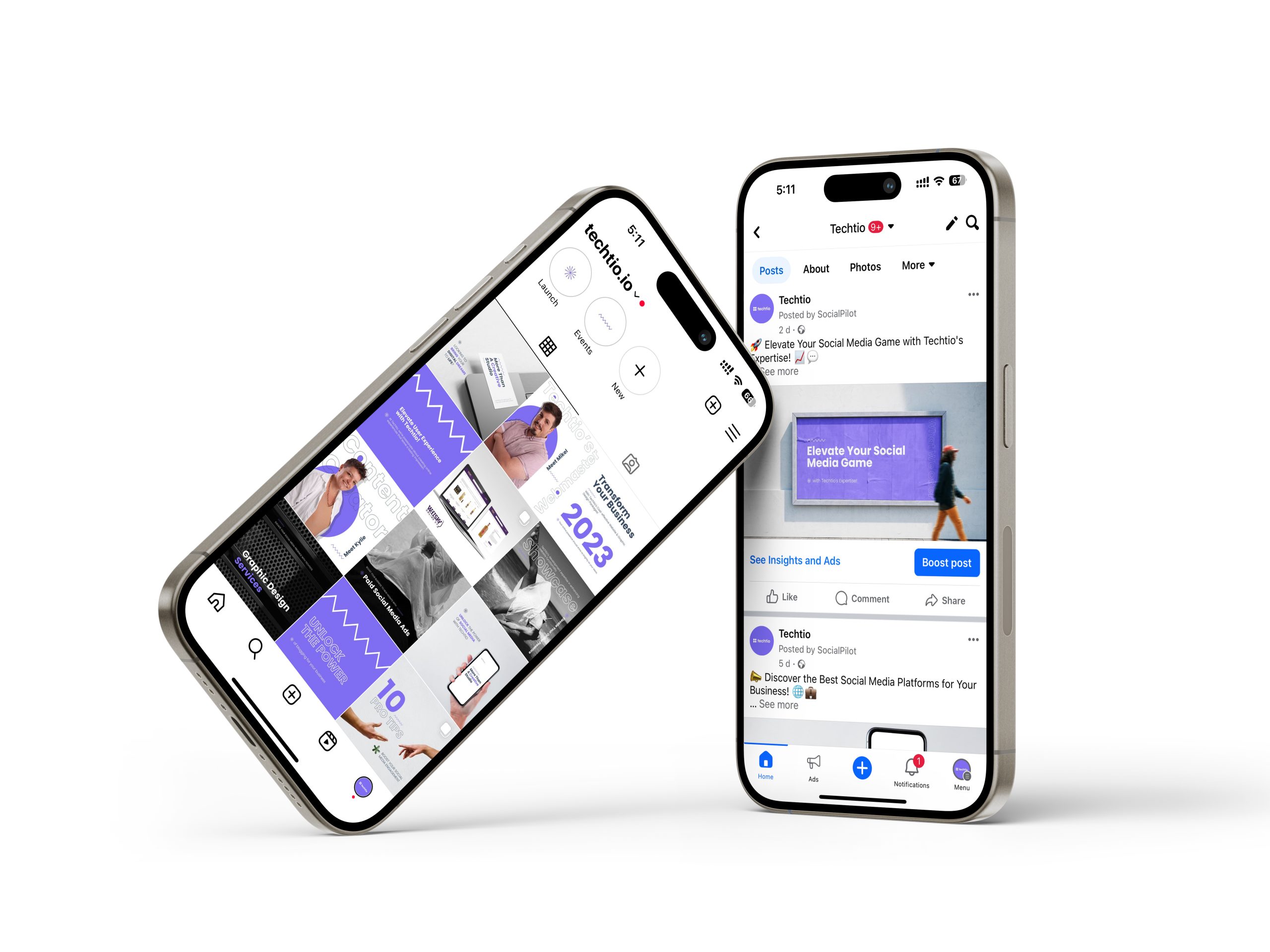
Which Social Media Platforms should I use?
Social media plays an integral role in business marketing strategies. With a myriad of platforms available, each catering to different demographics and interests, choosing the right ones for your business is crucial. In this article, we’ll delve into the pros and cons of various social media platforms, helping you make informed decisions to optimise your online presence.
Facebook: Connecting with a Wide Audience :
Pros:
Massive User Base: With over 2.8 billion monthly active users, Facebook offers unparalleled reach across demographics.
Robust Advertising Tools: Facebook’s ad targeting options allow precise audience selection based on interests, location, and behaviour.
Engagement Opportunities: The platform’s interactive features like posts, comments, and Messenger facilitate direct engagement with customers.
Cons:
Organic Reach Decline: Algorithm changes have led to decreased organic visibility for business pages, necessitating greater reliance on paid advertising.
Aging User Demographic: Younger audiences are migrating to newer platforms, potentially limiting the reach to certain age groups.
Privacy Concerns: Facebook’s history of data breaches and privacy controversies might deter some users from engaging with your brand.
Instagram: Visual Storytelling
Pros:
Visual Appeal: Ideal for businesses with visually appealing products, Instagram’s focus on photos and videos enables effective storytelling.
Engagement: High engagement rates due to the platform’s visual nature and features like Stories, Reels, and IGTV.
Influencer Collaboration: Partnering with influencers can help amplify brand reach and credibility.
Cons:
Limited Linking Options: Businesses can only place links in their bio, restricting direct outbound traffic.
Intense Competition: Saturated with visual content, standing out requires consistent creativity and unique branding.
Younger Audience Dominance: While advantageous for some brands, the predominantly younger user base might not align with every business’s target audience.
Twitter: Real-time Interaction
Pros:
Instant Communication: Excellent for real-time customer engagement, quick updates, and timely responses.
Hashtags for Discovery: Properly utilised hashtags can expand your reach to users interested in relevant topics.
Brand Personality: Showcase your brand’s voice, values, and personality within the character limit.
Cons:
Information Overload: The fast-paced nature of Twitter can bury your tweets amidst a constant stream of content.
140-Character Limit: While extended to 280 characters, this limit can still challenge conveying complex messages effectively.
Limited Visual Content: Compared to other platforms, Twitter’s focus on text makes it less suitable for visual-heavy brands.
LinkedIn: B2B Networking
Pros:
Professional Network: Ideal for B2B companies, LinkedIn facilitates networking, lead generation, and industry authority.
Thought Leadership: Publish articles and share insights to establish your brand as an industry expert.
Targeted Advertising: Reach professionals based on job titles, industries, and more.
Cons:
Niche Audience: While valuable for B2B, the platform might not yield significant results for B2C businesses.
Formal Tone: The professional environment might require a more restrained brand voice compared to other platforms.
Limited Organic Reach: Like Facebook, organic reach on LinkedIn has seen declines, prompting greater reliance on paid promotion.
TikTok: Short-form Creativity
Pros:
Viral Potential: TikTok’s algorithm can quickly propel content to viral status, boosting brand visibility.
Youthful Audience: Perfect for brands targeting younger demographics.
Authenticity: Users appreciate genuine, unpolished content, allowing for authentic brand representation.
Cons:
Content Production: Creating engaging content demands creativity, and not all businesses may have the resources.
Limited Analytics: TikTok’s analytics tools are less advanced compared to more established platforms.
Short-lived Nature: The fast-paced feed can result in short-lived content, requiring consistent posting to maintain visibility.
The best social media platform for your business depends on your target audience, content type, and marketing goals. A well-rounded strategy might involve a combination of these platforms, leveraging their unique strengths to maximise your brand’s online impact. Stay updated with evolving trends, engage consistently, and adapt your approach to truly harness the power of social media for your business. Techtio’s marketing experts can assist you with developing a social media strategy, and even offer Social Media Management (SEM) services, releasing you to focus on your other business activities. Get in touch for a consultation today.
Have any question?
Do not hesitate to contact us. We’re a team of experts ready to talk to you.
+35725262314
Your Opinion Matters!
Your feedback is important to us and we would greatly appreciate your thoughts on this article! Please let us know if you liked it so we can improve our content in future:
Get in touch!
For any questions or concerns, you may contact us using the following details
- + (357) 25 256 865
- [email protected]


